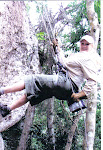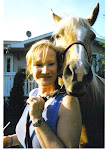
Call it scare tactics: When it comes to learning important lessons -- in the stock market or elsewhere -- it's OK to be afraid. Just don't be too afraid.
A Connecticut couple started with an investment account of several thousand dollars in the 1960s. They put it all in a single stock PepsiCo, and then watched as $800 vanished in a market downturn. The experience was so traumatic that the couple dumped Pepsi, and they haven't bought a single share of stock in the 40 years since.
But here's the killer, says a member of the family: "That position, if they had held on to it, would be worth over $3 million today."
This is the sort of episode that gives fear a bad name.
Fear is what makes people bail out of good opportunities when if they would have just stuck it out, could have made it. It's what makes them feel it's safer to work for someone else rather than taking a chance on themselves. Yes, it takes courage to be an entrepreneur but I can tell you one thing….. If you pick something that you have a passion for and stick to it…learning and growing, the rewards are “priceless”.
Yet fear is a good thing, in its place. Let's say you're hiking and spot a rattlesnake coiled up just ahead on the trail. The amygdala, the part of your brain that serves as fear central, instantly fires out a signal to make you freeze in your tracks. It happens before you're fully conscious of the threat, and that's what saves you from stepping on the snake.
The amygdala is constantly scanning not just for "natural triggers," such as snakes, but also for things that have threatened us in our daily lives, including financial calamities, past failure triggers and genetic limiting beliefs.
Let's say you were a novice entrepreneur caught in a “get rich quick scheme” surfing the reality-free momentum of the hyped up promises of your “up-line” -- until the day you watched your entire savings go out the window. The intense fear you felt causes you to remember that moment more vividly.
Noradrenalin, one of the fight-or-flight hormones, works on the amygdala as a long-term-memory enhancer, locking in every nasty detail about the thing that frightened you. Your amygdala remembers so it can instantly send out an unconscious alarm at any hint of the same threat. And that kind of learned fear can save your neck: The next time around, over-hyped opportunities may not look so thrilling.
But fear is also a tricky emotion. It can blind you to legitimate opportunities.
If you over-generalize a threat, it can give you a lifelong phobia about all opportunities, as happened to the Pepsi couple. The fear of financial loss literally causes pain.
"When you get burned in a fire, that registers in the pain centers of the brain," says Andrew Lo, a professor of finance and investment at the Massachusetts Institute of Technology. "And when you get burned by losing money, neurologists have demonstrated that that also registers in the pain centers of the brain."
One remedy for irrational fear is the same sort of exposure therapy that psychologists use on people who are afraid of heights, spiders or airplanes. Limiting your risk on a good opportunity and doing your due diligence can help you get over that unreasonable fear of failure.
And it goes without saying that is it looks too good to be true, it probably is. Now, that isn’t saying that there aren’t some pretty amazing opportunities in the home business arena, there are, but making sure it is a good fit for you will take a little bit of research. Research that could save you from another “bad memory”.
But if you are someone who is gun-shy after a big loss, you will need to reactivate the relevant areas of the brain, according to Lo. So a better way for him to rebuild his courage is by starting over at a smaller scale where the risks are not so daunting.
By going back into an opportunity and re-exposing yourself to the threat, under safer circumstances, you don't wipe out the memory of the thing that scared you. Instead, you form new memories, to define the threat more precisely. Trying to avoid all danger would just immobilize you. So you learn when it's safe to move forward even in the face of apparent danger.
Scientists have recently discovered that these "courage" memories engage a part of the brain called the ventral medial prefrontal cortex, or vmPFC. And the vmPFC can modulate or override the amygdala's fear response. So courage isn't a product of your brave heart. It comes from your vmPFC.
How can this help you the next time an opportunity rolls around? Professionals increasingly use meditation as a way to keep the mind clear, and new research suggests that over the long term it may make the vmPFC larger and more robust. Traditional relaxation techniques -- breathing deeply and taking a mental step back -- can also help entrepreneurs recover their precious sense of equanimity in the face of stress.
The idea isn't necessarily to get greedy when everybody else is fearful or vice versa. It's to overcome the excitement and to keep your emotions harnessed to your intelligence, not the other way around.
So if your fear is making you lose millions because “once bitten, twice shy” is all you feel when a good opportunity comes around, but you really think that you would like to be a successful entrepreneur, there are good opportunities out there, you just need to find one that limits your exposure, teaches you to be better, has support and mentoring to get you through the rough patches and then slowly proceed at your OWN comfort level.
Opportunities that push you to produce unrealistic quotas in order to earn or make you pass up sales before you get a piece of the action, or promise you the world for little or no work are ones that you need to run as fast as you can away from.
A proper business will have the infrastructure to guide you and support you, allowing you to earn as you learn.
Welcome to the world of home business. It can be very rewarding, very satisfying…as long as you read the rule book before you get on the playing field.






















